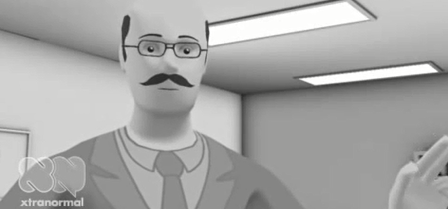Circuit Court Affirms Denial of Sanctions Over Spoliation by Defendant – eDiscovery Case Law

In Automated Solutions Corp. v. Paragon Data Sys., Inc., 13-3025/3058 (6th Cir. June 25, 2014), the Sixth Circuit court affirmed the holdings of the district court, rejecting the plaintiff’s arguments that the district court abused its discretion by denying plaintiff’s motion for spoliation sanctions due to defendant’s failure to preserve information on a hard drive and server. The circuit court also affirmed the ruling by both the magistrate and district judge that the defendant’s back-up tapes were not subject to the duty to preserve.
In a business deal that “soured” and a litigation that has been ongoing for over eight years, it all began back in 2001 when the plaintiff and defendant entered into a contract to develop and support computer software that would allow the Chicago Tribune to track newspaper subscriptions via a handheld device that communicated with a remote server. After “tensions emerged between the two companies”, the defendant terminated the contract in 2003. The plaintiff sued the defendant in Ohio state court, and after a bench trial, the state court found in the plaintiff’s favor and declared that it was the sole owner of the software system. Soon after the state court issued its judgment, the plaintiff filed an instant action alleging, inter alia, that the defendant had infringed on its copyright and trademark in the software via its development of a new similar software program that it provided to the Cleveland Plain Dealer. The defendant removed the new matter to federal court.
After numerous discovery disputes, the district court noted that “Paragon appears to have failed in its duty to preserve information because of pending or reasonably anticipated litigation.” Because the defendant had not produced documentary evidence of development of the new software code to the plaintiff, the court ordered the defendant to submit to a forensic expert investigation of its computer systems for evidence that the defendant copied the plaintiff’s software when creating its own.
The plaintiff moved for sanctions when it became apparent that the defendant disposed of a “Sun Server” key to the software development, and also lost information on two programmer’s hard drives. The magistrate judge found that defendant was “at most negligent” in its failure to preserve and recommended consideration of an adverse inference only for the loss of one programmer’s information, to be imposed at trial and not at the summary judgment stage. No sanctions were recommended for any other lost data and the magistrate judge not only concluded that back-up tapes created by the defendant were not subject to preservation, but also recommended granting partial summary judgment in favor of the defendant. After the district court adopted the recommendations in part and dismissed plaintiff’s claims (rendering the sanctions moot), the plaintiff appealed to the circuit court.
With regard to the “Sun Server” and a programmer’s hard drive, despite the failure to preserve having been found to be negligent, the plaintiff had not shown that the devices contained evidence relevant to the litigation, so the circuit court ruled that the district court did not clearly err in its conclusion that a reasonable trier of fact could not find that the missing information would support plaintiff’s claim. As for the back-up tapes, the circuit affirmed the earlier court rulings that cited Zubulake v. UBS Warburg LLC, 220 F.R.D. 212 (S.D.N.Y. 2003), which noted that a “litigation hold does not apply to inaccessible backup tapes (e.g., those typically maintained solely for the purpose of disaster recovery), which may continue to be recycled on the schedule set forth in the company’s policy.”
The Sixth Circuit noted that the Second Circuit reasoned that “the better approach is to consider [the failure to adopt good preservation practices] as one factor in the determination of whether discovery sanctions should issue…that a finding of gross negligence does not mandate an adverse inference instruction…and that a case-by-case approach to the failure to produce relevant evidence, at the discretion of the district court, is appropriate”. Noting that “[t]his case-by-case approach is the law in our circuit as well”, the court stated that “the district court did not commit a clear error of judgment” and affirmed the lower court ruling.
So, what do you think? Did the plaintiff get a fair shake? Please share any comments you might have or if you’d like to know more about a particular topic.
Disclaimer: The views represented herein are exclusively the views of the author, and do not necessarily represent the views held by CloudNine Discovery. eDiscoveryDaily is made available by CloudNine Discovery solely for educational purposes to provide general information about general eDiscovery principles and not to provide specific legal advice applicable to any particular circumstance. eDiscoveryDaily should not be used as a substitute for competent legal advice from a lawyer you have retained and who has agreed to represent you.




